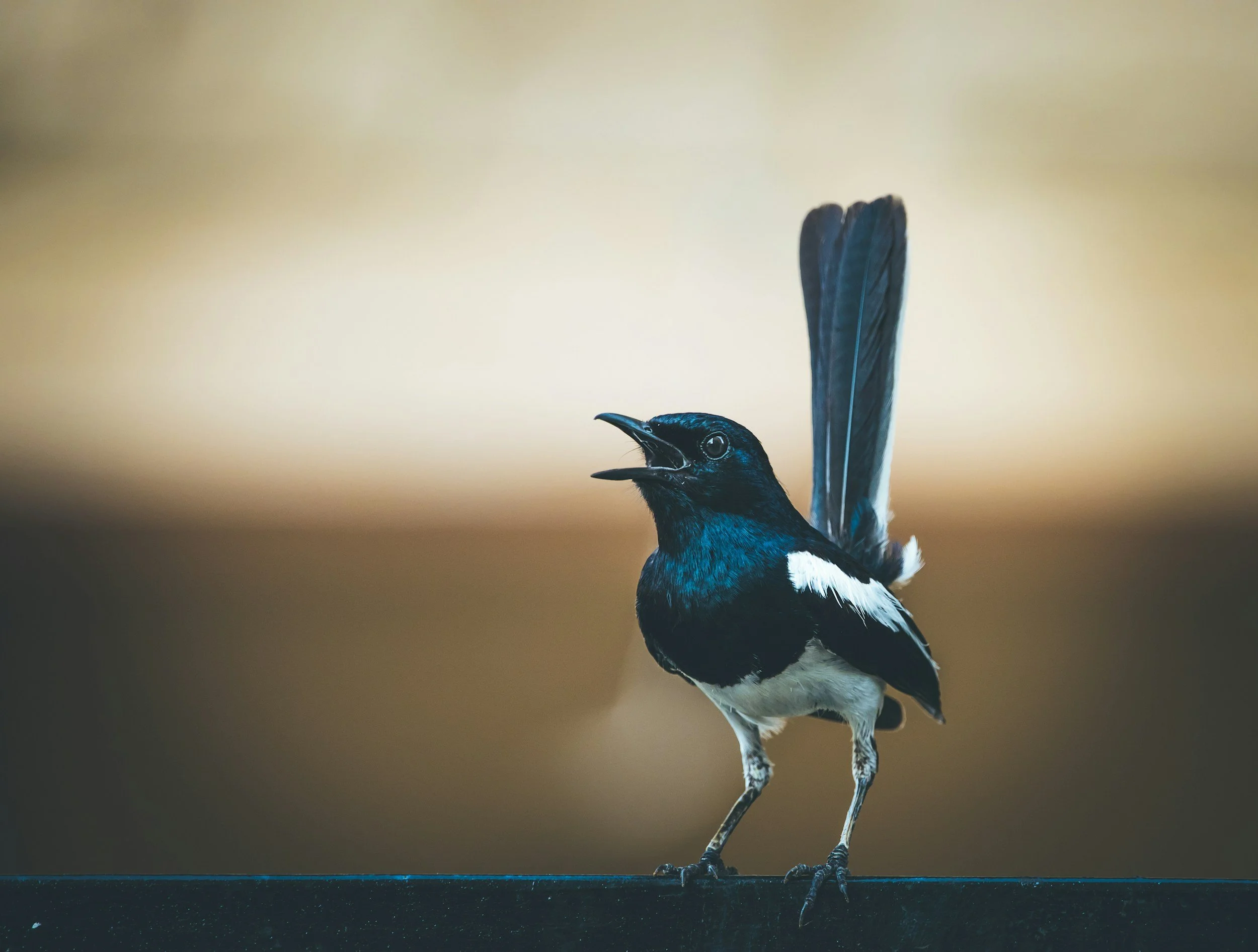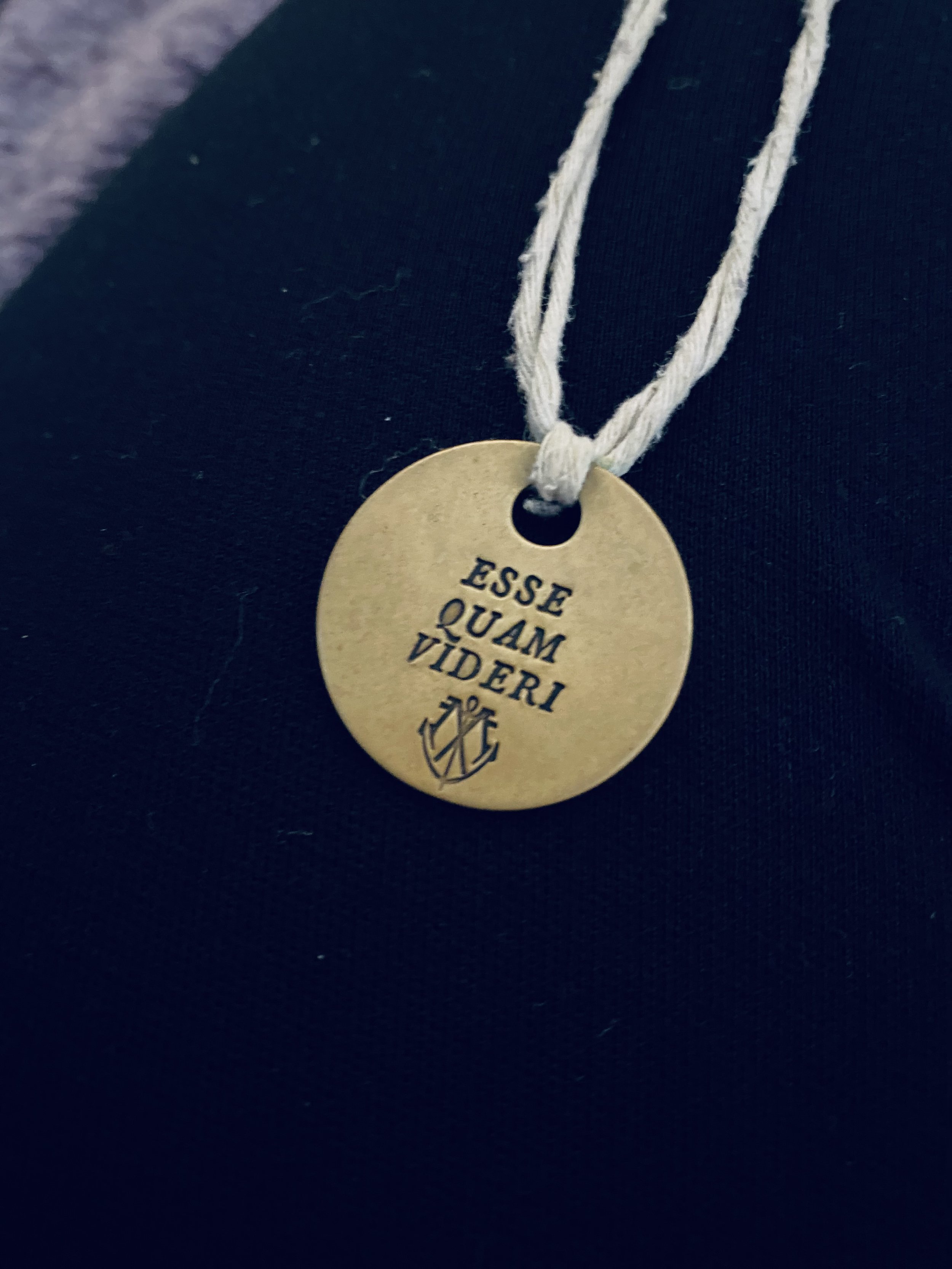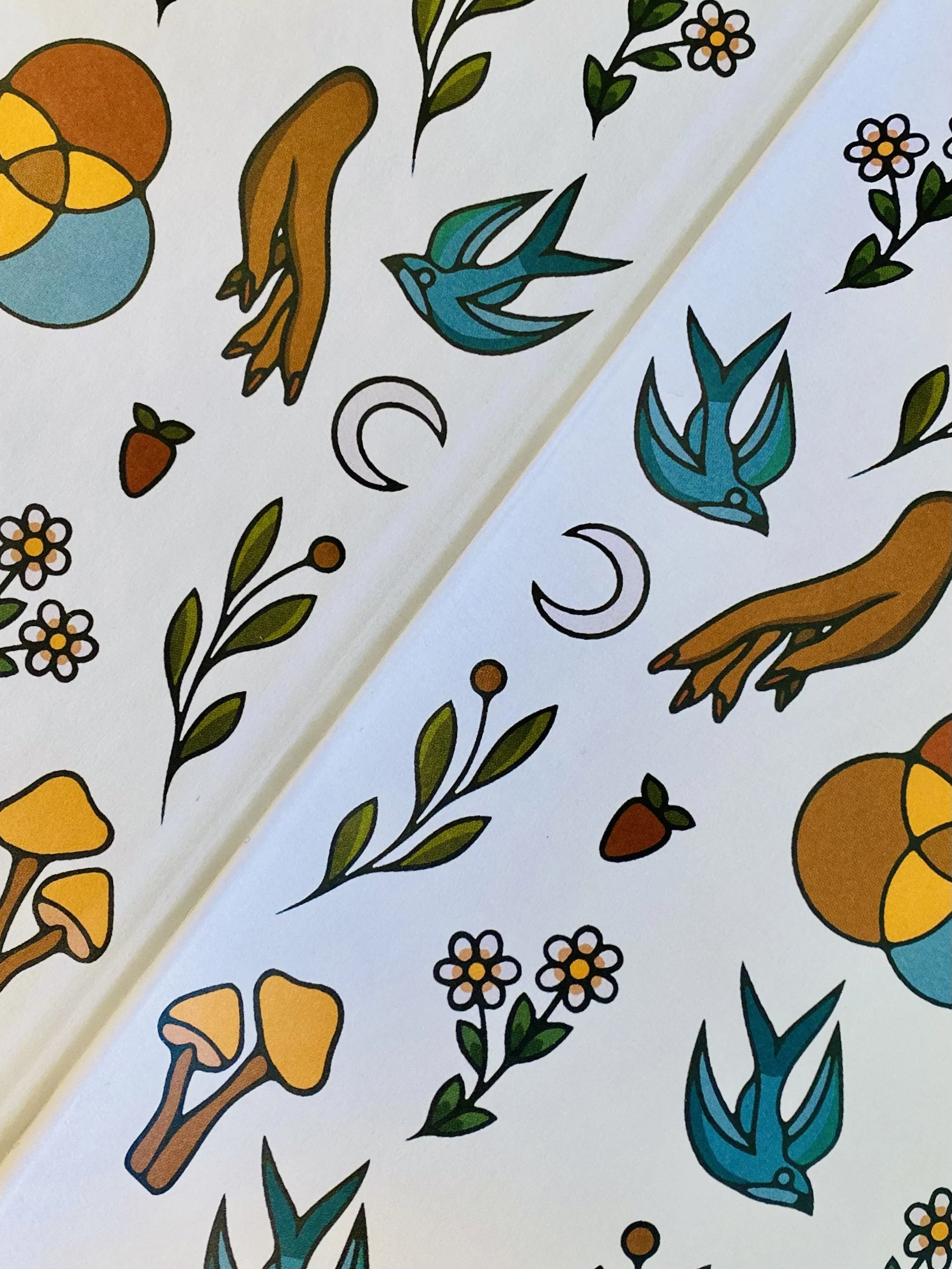Archives and Beyond
Don’t want to scroll through the blog? I get it. Scroll through the pictures below! And also, listen, we’ve all written stuff on the internet that we’re not excited about others seeing again. At the same time, our younger selves had some good thoughts here and there. Under the search bar, there are links to pieces I’ve written not on this site, some rehoused here and some in their original context. Use the search bar to navigate.
Not seeing the piece you’re looking for? It might be on my previous blog, which has links to other projects you may have seen over the past decade.
I’ve been feeling a certain kind of way recently, and maybe you have too. It’s like my brain refuses to function, or refuses to focus, anyway. I sit down to get some work done and the minute I open up my email and all the other tabs and programs I need, a haze comes over me. It literally feels like whatever fluid my brain is floating in gets thicker. I can’t think. I can’t focus. I don’t remember what I need to do and trying to figure it out feels like trying to run through a pool filled with Jell-O.
And this is what I want you to remember. This is going to be the take-away of the sermon today. Yes, we’re going to talk about fig trees and advocacy and farming practices in first-century Palestine, but at the end of it all, we’re going to come back to this truth: we all need an advocate. We never get through anything on our own. Everything that we have built and made and endured and survived, we have built or made or endured or survived because of others. And we have the chance to offer that aid to someone else every day.
When you watch a lot of Law and Order: SVU, you notice a line that characters repeat over and over again. It’s a signal that something’s wrong, like when a character in Star Wars says, “I’ve got a bad feeling about this.” When someone’s about to break, or when someone wants the moral high ground, inevitably, a character says, “How do you sleep at night?”
We need to be prepared to offer beauty and holiness to everyone who needs it. We need to stock up, as often as we can, so that we’re ready to share when someone is in need, because friends, we are the Body of Christ on this world. We are Christ’s hands and feet. Jesus doesn’t have any other flesh and blood on this earth but ours and so he can’t be on that dance floor, but brothers and sisters, siblings in Christ, we can. With enough contact with the living God, we can shine into this world begging for transfiguration and carry the love of Jesus into this world that sorely needs it. With enough practice, we can be enough like Christ to make a difference.
And don’t get me wrong. This quote could very, very easily become an excuse for quietism, for “peacemaking” centrism. In the wrong hands, in the hands of the powerful, this quote could rob any revolution of its fervor, asking us to wait on those who are actively harming us to change their minds. No, this quote is convicting specifically because of who it’s coming from, and who it’s for.
Much like our gospel reading today.
See, in the beatitudes, these blessings that we read here in Luke today, in the sermon on the plain, Jesus insists that there is a kind of divine osmosis at work. Those who are hungry, without enough food, will be filled. Those who are poor, without resources or means, they will receive a kingdom. Those who weep will laugh. The concentration of comfort and privilege will flow until those who have not receive abundance.
Now, I’m not saying that Isaiah gets it right here. I’m not saying that we need to speed along some future potential destruction. I’m not saying that we need to go out to the street corners holding signs that tell the world, “The end is nigh.”
I am saying that when someone is trying to tell the world that it’s going to hell in a handbasket because it’s not taking care of the poor and vulnerable, God and a whole host of angels are up there in the cheap seats shouting, “Yeah, you tell ‘em!” And when that prophet gets discouraged and says, “Who am I to do this? I’m just as bad as everyone else,” God gives them a kick in the pants and says, “Get back out there. Someone’s got to say this.”
Once you’ve experienced who you really are, it’s so, so hard to go back to being what you were. You realize how much energy went into pretending to be something that you’re not, and you just don’t have that energy to give anymore. I can’t squeeze myself back into femininity. I can’t mold myself back into one-dimensional sisterhood. I can’t wedge myself into an oversized white ball gown with thick straps, a sweetheart neckline, and cathedral veil and be paraded down the aisle. I can no more switch back to she/her pronouns than a rehabilitated bird can be put back in a cage. And that’s dramatic, I know, but so is this change. I like myself in a way that I never have before. When someone uses they/them pronouns for me, it’s like hearing someone say my name for the first time. It’s like belonging in my body for the first time, ever.
The widow of Zarephath doesn’t know how things are going to turn out. She thinks she’s got a clear picture of what’s ahead, and it’s devastating, but she doesn’t know that for sure. Here, at the end of her life, the end of her story, as she’s collecting sticks to cook her last meal, is a holy man, asking her to choose to try.
This passage comes in a section of Mark I like to call, “Exasperated Jesus.” Seriously. First the disciples are arguing about who’s the greatest, then a rich man chases him around asking him what he has to do, then James and John want to “sit beside Jesus in glory,” and the whole while, Jesus cannot believe the stuff he’s dealing with. Jesus spends like three chapters walking around Judea, bouncing between Jerusalem and Jericho, like a mother with three kids under five. One says he’s hungry even though he’s got a snack catcher of Cheerios IN HIS HAND, another has just fallen and is wailing over the lightest of skinned knees, the other one has somehow inserted most of a toy car in their left nostril, and here’s Jesus, raising his eyes to the heavens, asking what could possibly happen next.
When we follow the path of this building up to the ceiling of the nave, up to this boat we’re all in together, we must deal with the knowledge that we are not alone. God is not away up there. God has declared that God is with us, each and every time we gather together here. God has declared that a church may meet here in this place, and in this place, no one stands alone.
Because while sacred means set apart, holy shares an origin with the word “whole.”
My keyring holds the weight of the places I’ve loved. It hangs, awkwardly, from the lock of a new and temporary home, swaying slightly with remembered motion, and as it swings, I see flashes of who I used to be.
If you look in the bulletin, you’ll see that our sermon this week is titled, “Abide.” This is one of those moments that happens to preachers sometimes, where the idea they had for the sermon on Tuesday when the bulletin was due doesn’t exactly line up with where the sermon wanted to go on Wednesday... or Thursday... or Friday... or 11:30 at night on Saturday. Sometimes sermons have a mind of their own. So I promise that we will talk about abiding during this sermon, but I don’t think I want to start there. What’s been on my heart this week is change. Change and volcanoes.
Let me explain.
Thankfulness has been a challenge for me all of my life. It may not surprise you to hear that I was a serious little kid, one of the old souls you sometimes find amongst children. I was thoughtful and responsible to a fault. So when I was given a small plastic coin as a child at a Thanksgiving service, with a smiley face and the words, “Rejoice always! Again, I say rejoice!” printed on it, I took it and put it in my pocket, and began a lifelong journey of trying to figure out how to follow this new rule I had learned.
One of my basic theological beliefs is that there is an undying love at the center of the universe. When you strip away everything else, all our rituals and practice, all our questions and doubts, our understanding of good and bad and what to do with that information, when nothing else is left, there will still be an unending, undying love that will not let you go.
My senior year of high school, circa 2007, I remember receiving a gift made of olive wood from the holy land. I remember turning it over, feeling the stirrings of longing, or loneliness, maybe, that feeling of wanting to go home to a place you’ve never been. But this was real. This wood was from a real place, a place I could maybe go one day. This was the place in the Bible, the place that all those little towns of Bethlehem in the US were named after. Israel.
A woman and her beloved child are sent out into the desert with nothing but some bread and a skin of water, which means they were sent out into the wilderness to die. Even if we weren’t caught up in the extraordinary story of Sarah and Abraham, this is anything but an ordinary bible story. It’s not every day that we see paragons of our faith like this patriarch and matriarch choose to be so cruel.
Living Resistance did a gospel work on my soul: it called me into a better way of being, where the yoke is easy and the burden is light, while, at the same time, renewing my commitment to justice. As a United Methodist, I have committed myself to resisting evil, injustice, and oppression in whatever forms they present themselves, but it took reading this book for me to understand that resistance must be life-giving.
On this shortest day and longest night, I’m spending time with my questions. I’m trying to sit in the holy darkness and to learn from the mystery. I’m holding myself back from the answers I want to jump to, because what is sacred today is the deep and enveloping blackness, where I am freed from all the knowing and expectation, freed for the unknown and unexpected.
The surgery, which was supposed to start at 12:20pm, actually started around 3:15pm, a little more than an hour after they took me back for surgery. Do I know how any of this felt? No, I was asleep. But I do know from some group chats that people started getting a little worried once we passed the expected four-hour mark of surgery. And then five. And then six.
Cancer is funny, until it’s not.
Some thoughts from Surgery Week, including a lot of complaints about prep drinks.
A clean chest CT, a surgery date, and a short guide on how to deal with people dealing with cancer.
I was at home when the news alert came across my phone. There had been—
No. I have to start earlier.
I want to be profound. Aren’t chronic pain sufferers profound? Doesn’t the daily presence of the thing we’re all trying to avoid every moment of our lives cause them to see the world differently?
Jesus has proclaimed the year of the Lord’s favor, a jubilee. In a jubilee year, everyone is set free. The land is given a rest from constant tilling and the people are released from all debts. It’s a reset, an equalization, a loosening of what binds us. Just as Lazarus is freed from his graveclothes after Jesus calls for him to come out, in a year of jubilee, we are freed from all that has held us in death.
Through all the fog of this moment, and through all the storms of emotion that may lay ahead, I know I’ll hold onto that thought: she is home.






























